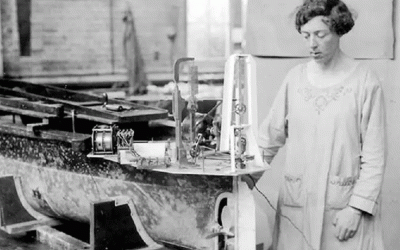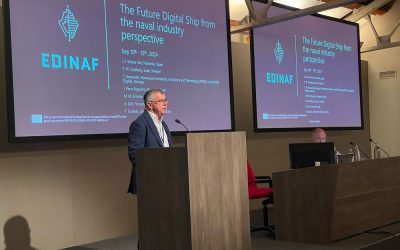The Naval Architect: September 2019
Against the backdrop of toughening climate related policies and a growing carbon conscious, waste heat recovery systems (WHRSs) have made a resurgence within the shipping industry. According to Global Market Insights, the global waste heat recovery system market is expected to surpass US$80 billion by 2025, as sectors including chemical, heavy metal and maritime all seek to reduce their carbon footprint.
Shipping first adopted WHRSs in the aftermath of the 1970s Oil Crises but only began re-examining the technology in recent years. The renewed interest in utilising waste heat has prompted new technological developments, making the systems more versatile and applicable to a wider range of ship types. Among the companies breaking into this reopened market is Munich-based manufacturer, Orcan Energy, which is striving to help shipowners cut emissions and save money with their compact efficiency PACK.
Orcan’s packs transform lost heat into mechanical or electrical energy through the Organic Rankine Cycle (ORC), essentially the reverse of a refrigeration system, whereby a refrigerant is continuously circulated. By basing its system on the ORC instead of the more traditional steam Rankine cycle or steam turbine, Orcan can offer both oceangoing and inland vessels the chance to take advantage of their lost heat.
“We basically made waste heat recovery technology available to ‘the masses’”, says Bas Flipse, Orcan’s sales coordinator of marine applications. “A big steam turbine will never work on an inland waterway vessel, small ferry, coastal vessel, etc., but our system works well with these kinds of ships.”
The clean tech company has been devising solutions for transforming waste heat into electricity for industry and power generation since 2008. Around two years ago, however, it branched out into the shipping industry when it began actively selling its efficiency PACK. Last year, Orcan went on to gain approval from Lloyd’s Register for its WHRS.
Fuel and efficiency gains
Measuring in at around the same size as a shower cubical, the pack is based on a one-size-fits-all model. “We had several design requirements like compactness and modularity in order to make it suitable for many types of ships”, says Flipse. “This means that we now have a product that is compact enough to be installed on inland waterway vessels, but due to its modularity we can also combine multiple units for ships that produce greater quantities of waste heat.”
Not only are the packs usable with most ship types, they can function with every kind of fuel and engine type – one pack is capable of operating with any engine rated at 1MW or higher.
In terms of energy, a single pack can generate up to 100kW, with multiple units being able to drive even higher quantities. Depending on engine model and operating profile, a vessel could save around 6% in fuel in full load or 9% in partial load. For example, an installation of four units, Flipse says, could translate to a total fuel saving of approximately €220,000 to €250,000 (US$245,000 to $278,500) annually.
According to Orcan, payback period for its efficiency PACK is between two and four years. Although, due to the low temperature of waste heat, it can be challenging to harness and power output can fluctuate as a consequence of varying waste heat availability.
Of course, one of the biggest drivers for installing an WHRS today is EEDI and the tightening emission control requirements. “I would say that a typical case is where we install four units and save around of 350 to 400tonnes of fuel annually and reduce CO2 emissions by 1,000 to 1,200tonnes”, says Flipse. Therefore, even if just one unit is fully utilised throughout an entire year, a vessel’s CO2 emissions could be cut by up to 450tonnes.




